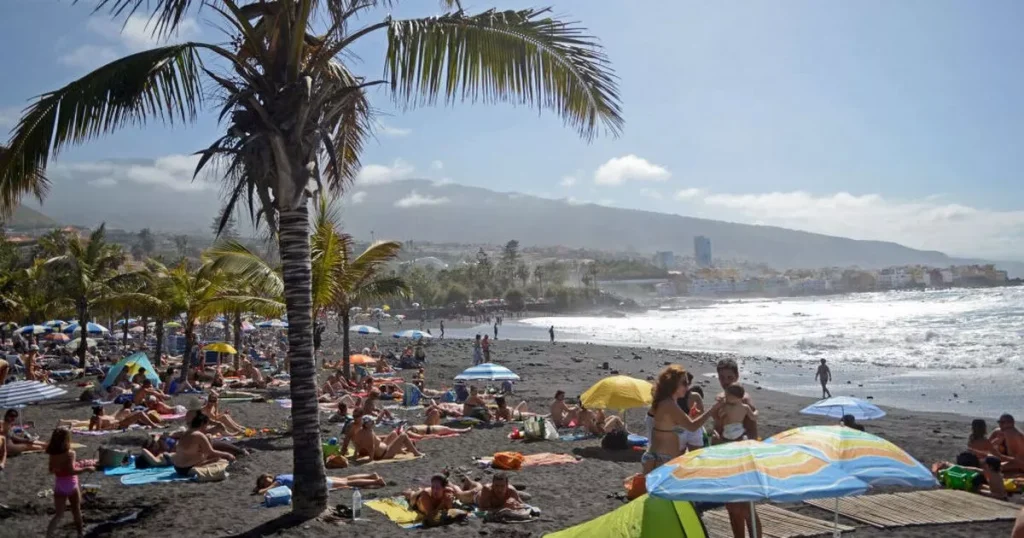The new post-Brexit rule change that limits British holiday home owners to spending only 90 days at a time in Spain has caused many Brits who own properties in Tenerife to start selling up and leaving the island. This rule change has been met with resistance from both locals and tourists who have enjoyed spending months in the Canary Islands. Thousands of locals protested over the weekend, demanding a cap on tourist levels, saying that the island is “not for sale.” The tension between locals and foreign tourists has been escalating, leading some Brits to abandon their holiday homes due to the restrictions imposed by the new rules. Many have already started returning to the UK as a result of the changes.
The frustration with excessive tourism in Tenerife is not limited to locals, as tourists have also expressed concerns about the island being overrun by hotels and holiday homes. Many British residents in Tenerife have been impacted by the soaring rent prices on the island, forcing some to sell their properties. Lisa Robertson, who runs a Scottish pub in Playa de las Americas, shared that some long-term residents have been priced out of their homes due to the increasing rent costs. The rule change limiting the stay duration for Brits has resulted in a subdued atmosphere on the island, with some long-term residents feeling disheartened by the impact it has had on their lifestyle.
The demonstrations against tourism levels in Tenerife reflect the growing discontent among both locals and holiday home owners. Some residents have witnessed the transformation of the island into a tourist hub, with concerns about overcrowding and environmental degradation. The restrictions imposed by the new post-Brexit rule have exacerbated these issues, prompting some Brits to consider selling their properties and leaving the Canary Islands. The protests and resistance to excessive tourism highlight the challenges faced by both locals and foreign residents in striking a balance between preserving the natural beauty of the island and accommodating visitors.
The impact of the rule change on Brits living in Tenerife extends beyond housing issues, affecting social interactions and local businesses. Many long-term residents who used to spend months on the island and frequent local establishments have been forced to reduce their stays and change their lifestyle. This shift has also affected businesses that rely on tourism, as the demand for staffing in British-owned bars has significantly increased. The rule change has disrupted the social fabric of the island, leading to a decline in the vibrant community that once thrived in Tenerife. The challenges faced by Brits living in Tenerife due to the new restrictions highlight the broader implications of post-Brexit changes on the expatriate community and local economy.
In response to concerns about unsustainable tourism levels, both locals and tourists are calling for a more balanced approach to development on the island. The demonstrations and protests against the increasing numbers of hotels and holiday homes reflect a shared desire to preserve the natural beauty of Tenerife and protect the local environment. The restrictions imposed on British holiday home owners following Brexit have added to these challenges, prompting some to reconsider their long-term plans in Tenerife. As Brits continue to grapple with the implications of the rule change, they are faced with the difficult decision of either adapting to the new regulations or leaving behind the lifestyle they once enjoyed in the Canary Islands. The ongoing tensions between residents and tourists underscore the complexities of managing tourism in popular destinations like Tenerife and highlight the need for sustainable solutions to address the concerns of all stakeholders.














